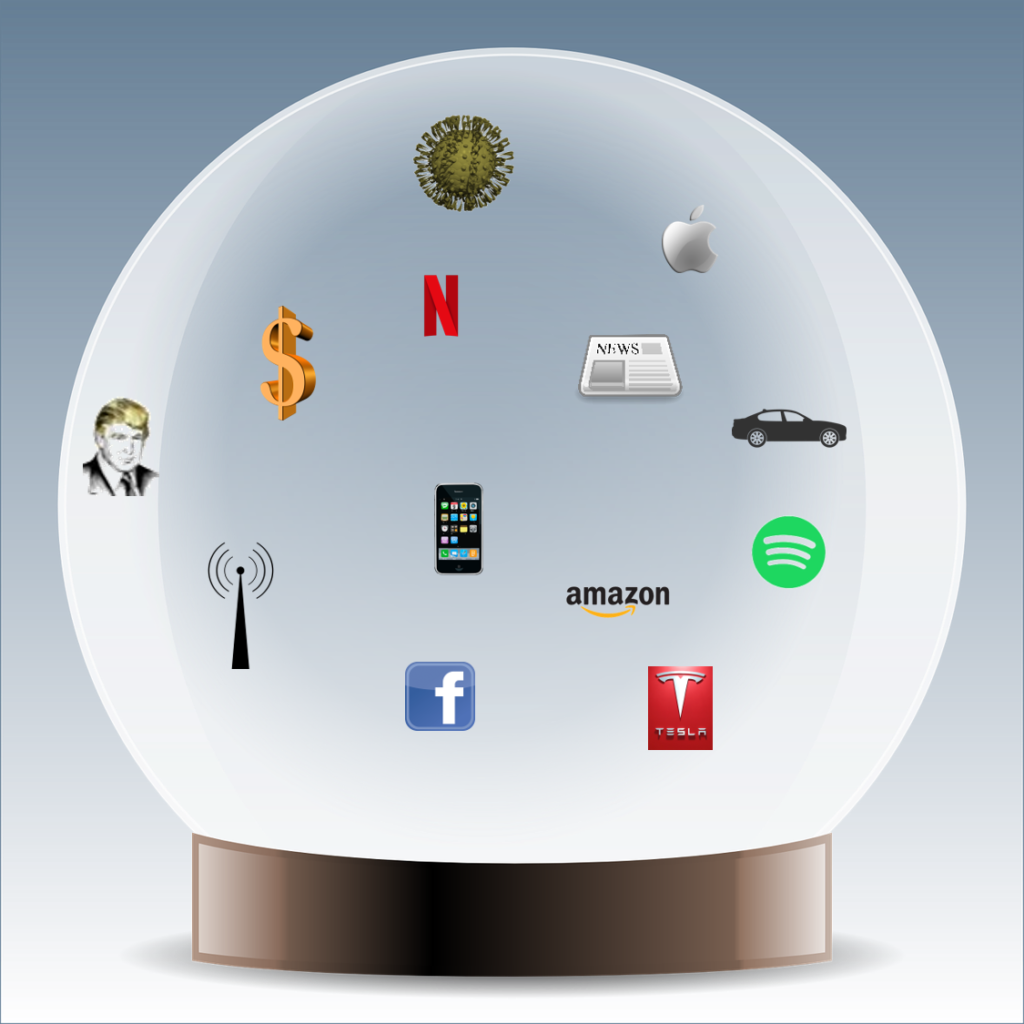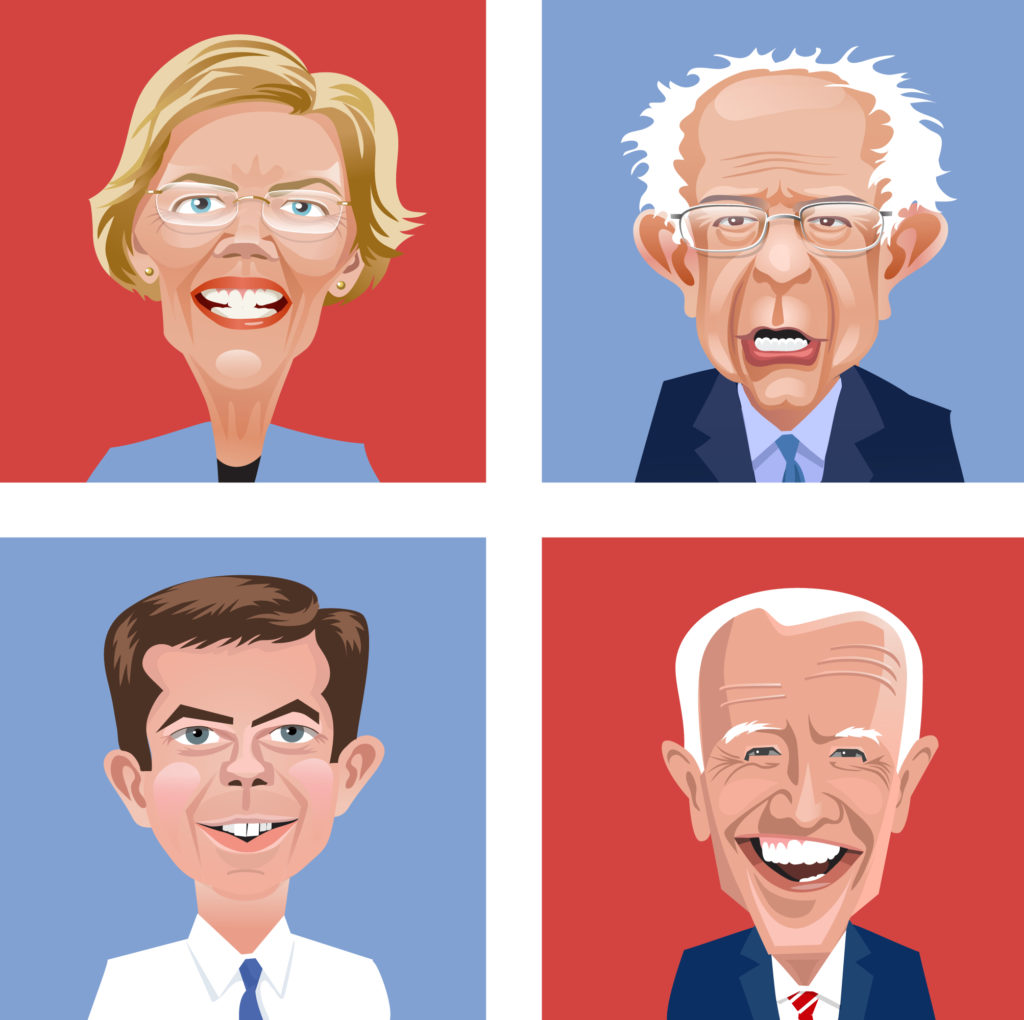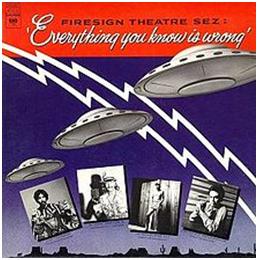
Already, 2020 is proving to be a challenging year for broadcast radio. And it’s only getting weirder as the worlds of politics, health, and the financial markets collide.
If you’re in a planning and strategic position in your company, it is especially important to try to develop a keen sense of what’s coming. After all, how can you accurately forecast if you don’t have a strong sense of where we’re headed and when we’re going to get there?
So, let me share a little secret with you – you can’t.
And anyone who tells you differently is delusional. When the markets will bounce back, how this coronavirus story will play out, and who will be sitting in the Oval Office next January are simply unknowns.
The uncertainty only deepens as these news stories twist and turn, often changing by the hour. And yet, technologists believe that with the help of data and Artificial Intelligence, they can cut through the fog and tell us what’s going to happen.
Take Amazon for example. Maybe they can’t determine the answer to some of these big questions looming around us. But they’re trying to figure out how to predict hits – songs, films, TV shows – in short, what will succeed in pop culture.
And they’ve been at this for some time now. A story in Digital Music News by Ashley King says Amazon first filed for a patent for their technology way back in 2013. The idea was to develop algorithms that could predict smash hit songs.
The focus of this technology is on early adopters – the tastemakers and trendsetters among us. By exposing them to “obscure media” and measuring their tastes as well as their past likes and dislikes, Amazon hopes to pick future hits – from all pop culture outposts.
I don’t want to rain on Jeff Bezos’ parade. After all, he’s the richest man in the world (or at least he was until last week). Having conducted audience research for decades now, it has become increasingly clear to me consumers cannot assess the success or failure of something – before they’ve experienced it. While algorithms may aggregate similar patterns in tone and timbre, or perhaps the presence of chase scenes or CGI animation, their ability to predict hits is highly suspect.
The lack of predictability in our world seems to have reached a fever pitch in just the past few weeks. The series of recent events we’ve watched should be reassuringly disassuring that we simply couldn’t see them coming.
 Take the Democratic horse race to the nomination, for example. For the better part of a year now, we’ve been told the key to winning the sweepstakes is a huge advertising budget (especially TV), strong ground games, and solid debate performances.
Take the Democratic horse race to the nomination, for example. For the better part of a year now, we’ve been told the key to winning the sweepstakes is a huge advertising budget (especially TV), strong ground games, and solid debate performances.
Yet, somehow, in the 72 hours leading up to Super Tuesday, Joe Biden flipped every prediction on its head. He ran out of money, had a lousy organization that didn’t even show up in several states, and wasn’t exactly sizzling on the debate stage.
And yet, he’s emerged the winner.
At least for now. That was in spite of every pundit proclaiming him D.O.A. after the Nevada caucuses, way back on February 22nd. That seems like a lifetime ago.
No one could have predicted it. But it happened.
Had I told you on New Year’s Eve that a pandemic would break out in the first quarter of this year, altering our lives, cancelling plans, conferences, vacations, and business trips, and creating shortages of bottled water, toilet paper, and hand sanitizer, you would have told me I was nuts.
No one could have predicted it. But it happened.
The fact is, “Nobody knows anything,” to quote author William Goldman. How do I know that? Because I keep seeing TV ads for cruise lines. Seriously, what are they thinking. .
One of my favorite albums back during my college years was from a comedy troupe known as the Firesign Theater.  “Everything you know is wrong” was a collection of crazy bits, zaniness, and weirdness, all underneath that prophetic banner headline. I think about it often these days.
“Everything you know is wrong” was a collection of crazy bits, zaniness, and weirdness, all underneath that prophetic banner headline. I think about it often these days.
That may not make you feel better, but it should reinforce the notion that if you’re working for a radio station right now, you’re in a very special position to make a difference in people’s lives, particularly in these highly volatile times.
That’s the case whether you’re rocking or chilling them on a commercial music station, informing them on a public radio station, or comforting them on a Christian station. As consultants will always tell you, “your mileage may vary.” That is, every situation is unique, due to factors that include your brand history, your personalities, your cluster partners, your specific market conditions, your community presence, and your competition.
And where you are matters. The vibe is very different in Seattle right now than it is in Savannah or Syracuse. But that reality could change on a dime.
If you’re working in radio – behind a desk, behind a mic, in a cubicle, or in the corner office – you may be wishing for an algorithm that can predict what will happen this year. This quarter. OK, this week. Tomorrow.
It’s not going to happen.
So, given all this uncertainty, what do we do – as radio broadcasters and as people?
We do our jobs. And in the process, we step up our games.
These are not usual times, so we can’t just do “business as usual” radio.
That means understanding your purpose. As the oft-quoted Clayton Christensen would advise, it’s about knowing “the job your audience is hiring you to do.”
What is your station’s role? Why do people listen? The answer is not that you play “Today’s Best Country.” Or that you’re “#1 For Hip-Hop.” Or because you’re giving away $1,000 four times a day.
If you’ve been conducting research over the years or if you’ve been a stakeholder in our Techsurveys, you should know the answer to these questions.
 If you’re not sure, pull together a Listener Advisory Board and have a conversation with your audience. Or walk into the production studio and start answering the phones. Or go to a station or community event, and talk to people. Better yet, listen to them. What are they talking about? What are their concerns? How are they feeling? How is their state of mind?
If you’re not sure, pull together a Listener Advisory Board and have a conversation with your audience. Or walk into the production studio and start answering the phones. Or go to a station or community event, and talk to people. Better yet, listen to them. What are they talking about? What are their concerns? How are they feeling? How is their state of mind?
At times like these, it’s the emotional benefits radio provide that matter most – mood elevation, companionship, escape, comfort, a local connection, a little laughter, a shoulder to cry on. Chances are, these are some of the things your audience needs from you, and you can’t deliver them with your music scheduling system or a generic prep sheet.
Most people are feeling a strong sense of anxiety, fear, and concern about everything. Radio is the most local and intimate of media – bar none. These are the times when you can truly make a connection, and in the process, differentiating radio from the spate of digital and satellite competitors in the midst.
But when there are things going on – in the world, in your country, and in your market – none of what has happened before amounts to a whole lot. Life is moving at real time, in-the-moment – not like a Netflix movie made in 2017 or a Joe Rogan podcast recorded 10 days ago. This little exchange on Twitter yesterday brought that home to me. First, I laughed. And then I just shook my head.
This would be called a radio https://t.co/RjDvpfyVt6
— Ronnie K, Office Fanatic and Sports Talker Guy (@RonnieKRadio) March 5, 2020
Many have forgotten what radio’s “job to do” truly is. Even including some people who work in radio.
As Paige Nienaber discussed in our blog post this past Monday (it seems like a month ago!), this is how local broadcasters can make a difference in people’s lives, while redefining and crystallizing how they think of radio.
We can’t predict the future. No one can.
But we can control the controllables.
Be of service to your audience, the people you manage, and the people who manage you.
Know your purpose, stay in your lane, do your job, serve your community.
I wish Amazon all the luck in the world on the development of their prediction algorithm.
Want to know my prediction?
All bets are off.
We will get through this, but there will be winners and losers.
There are stories that will be written about this year. These times. This situation.
Let’s write the next chapter of our radio story in 2020.
- In Radio, You Just Never Know - April 17, 2025
- The Secret To Making A Great Podcast (And Great Radio) - April 16, 2025
- I Read The (Local) News Today, Oh Boy! - April 15, 2025




If Amazon could develop AI that not only tests for taste, beat, tempo, and style in music. to name a few, but also the mood of the person at that point in time. Yes, mood is a setting in the music scheduling software, but knowing the mood or the feelings of the person at a point in time could be the game changer. Are you in the mood for Van Halen, Sergio Mendez and Brazil 66 or George Strait? I like all three, but it depends on the day. Maybe it is a enzyme or hormone sensor on your IoT wearable.
I’d rather figure out how to predict the stock market. Thanks, Joel.
Some things never change, no matter how much technology changes…the human aspect remains the same. This book from college on the functions of Mass Entertainment rings as true today as it did in 1966 when it was first published. https://www.amazon.com/Mass-entertainment-Harold-Mendelsohn/dp/B0006BOI0G
Paul, good to hear from you. Thanks for the recommendation & reading our blog.
Someone already beat Amazon to it Fred.
https://www.youtube.com/watch?v=5pidokakU4I
Thanks for this, Mike.
And one of the best articles I’ve read on the “formula” or producing hits.
https://www.newyorker.com/magazine/2012/03/26/the-song-machine
My god, thats the most depressing thing I’ve read in years.
Don’t blame you for shaking your head at that tweet, Fred. I had precisely the same reaction.
Even though we cannot predict the future, radio has historically been the medium that adapts and adjusts when unforeseen events happen. That tweet tells me that over the years, we have gradually moved away (at least in listener perception) from that strength. Some stations still do it well, but we all need to improve in that regard.
More important is that I see that tweet as a wake-up call in terms of educating the public that we are still here … and relevant.
My thoughts exactly, KM. It’s like “How does she not KNOW that?” But that’s old guy thinking. The fact is, if broadcast radio doesn’t walk the “live & local” walk, only old guys will remember we used to do that.
A wonderful piece, Fred. So well and wisely said.
Appreciated.
This is a great column Fred. I have a lot of thoughts, so I’ll condense them.
!) I do think there will come a time when AI will be able to create and predict hits. At some point, they will be able to measure common factors in how brains react to hits vs non hits. At first, they’ll just test reactions but eventually they’ll figure out how to use AI to create the hit response – initially music then lyrics and music. I don’t know how far we are from that, but I can’t imagine that we won’t get there someday – not all that far from now.
2) Radio, particularly in the small and medium markets has made what you suggest irrelevant. There is no human touch any more so nothing learned would be actionable. Shows are recorded hundreds or thousand miles away. Programming decisions are made primarily by a few people, also far away. I noticed that WDVE doesn’t seem to play The Clarks anymore. WNCX seems only to play Michael Stanley in request hours. Markets the size of Cleveland and Pittsburgh still have some local people on air, but the smaller markets don’t – and does anyone doubt that its only a matter of time before Cleveland and Pittsburgh are mostly or all tracked?
So why bother sending someone from your events team to talk to people and find out what matters to them? Someone far away, will look at some research from the nearest place they still do it (probably hundreds of miles away) and decide that what matters to people here matters there too because they speak with the same kind of accent.
We could really use two way access to radio personalities. I think facing the possibility of a global pandemic would be a great time to have it. Artists are much more in touch with their fans than radio and its a real shame IMO.
Bob, you’ll get no argument from me on many of these points. Some broadcasters have tacitly deemed “live & local” irrelevant, or simply lacking ROI. I have always believed that’s a mistake, and perhaps it is a moment like the one we’re apparently in where that becomes apparent.
As you know, this blog is intended for anyone with an interest in radio – and that covers a lot of people and different situations. Some have direct control over what their stations do; others do not. I would hope for the bigger companies where corporate decisions are (generally) centrally made, this moment in time serves as a catalyst to revisit past policies. As I wrote, this could prove to be a test for the radio business – a unique (although sad) opportunity to re-establish’s radio’s role in the lives of millions of people.
Disagree totally! In radio, I knew music “schtick” personalities were “non factors” by 1985. America stopped buying lots of music by 1986. Stopped going to concerts in mass by 1989. Mortgages, marriages and inflation killed it. The best billing years for medium market radio were 1978 – 1982. Then the FCC deregulated and personnel were cut. The 1989 – 1982 recession took 50% of the billing and audience in medium markets. From 1993 to 2001, WBZ-AM’s audience went from 750,000 per quarter hour to 230,000. Your company among others milked burned out music libraries, features and formatics. This approach beat a dying horse.
I don’t know where to begin here, Don, so I will let your comments speak for themselves. I will, however, leave you with this: Music libraries, features, and formatics have been in play since the 1960’s, and in many ways, are similar in architecture and scope today. As for our company, we have always championed live & local, big personalities, and community service-focused radio. And some clients have actually listened to me. Thanks for commenting.
Dear Don,
These discussions can only be productive if we can all agree on facts. Your comments about buying music and the state of live concerts don’t line up with reality. And someone should call all those doing morning drive in major markets and tell them they’ve been toast since 1985? Since you mentioned a Boston signal remind me to call Matty in the Morning on Kiss 108 and tell him he is a “non-factor.” A non-factor in dominating morning drive since 1981.
Appreciate the perspective, Tai, as always.